DAY1 All Speakers for 18 July 2018
President, IGES
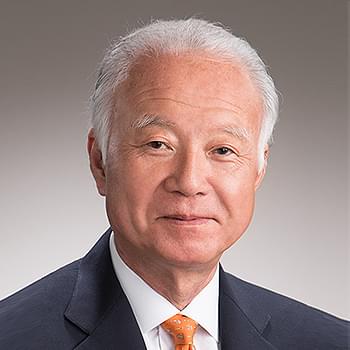
Welcome Remarks
Kazuhiko Takeuchi
President, IGES
Kazuhiko Takeuchi graduated from the Department of Geography, the University of Tokyo in 1974. He obtained M.Agr. and Ph.D. from the Graduate School of Agriculture, the University of Tokyo. He served as a Professor at the Asian Natural Environmental Science Center, and as Professor at the Graduate School of Agricultural and Life Science at the University of Tokyo from 1997 to 2012. He also served as a Vice-Rector and Senior Vice-Rector at the United Nations University from 2008 to 2016. He has been Director and Professor/Project Professor of the Integrated Research System for Sustainability Science (IR3S) at the University of Tokyo since 2012. He took up the position as President, Institute for Global Environmental Strategies (IGES) in July 2017. He has served, inter alia, as a Vice-President of the Science Council of Japan, Chair of the Central Environmental Council, Government of Japan, and Editor-in-Chief of the journal Sustainability Science (Springer Nature).
He specialises in landscape ecology, landscape planning, and sustainability science.
State Minister of the Environment, Japan

Guest Remarks
Naomi Tokashiki
State Minister of the Environment, Japan
Vice Governor, Kanagawa Prefectural Government
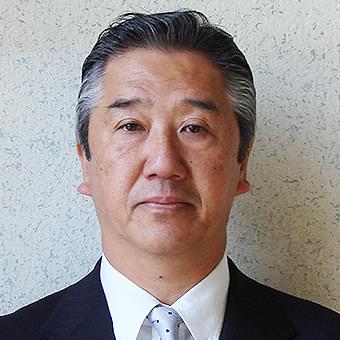
Guest Remarks
Yoshisato Asaba
Vice Governor, Kanagawa Prefectural Government
After graduating from Department of Civil Engineering, Tokyo Institute of Technology, Yoshisato Asaba entered Kanagawa Prefectural Government in 1980. He served in various positions, including Director of the Urban Planning Division, Executive Director of the Ecological Urban Development Department, Executive Director of the Urban Areas Department, and Director General of the Prefectural Land Development Bureau. He was assigned to the current position, Vice Governor, in May 2016.
Director, Stockholm Resilience Centre / Professor, Environmental Science, Stockholm University
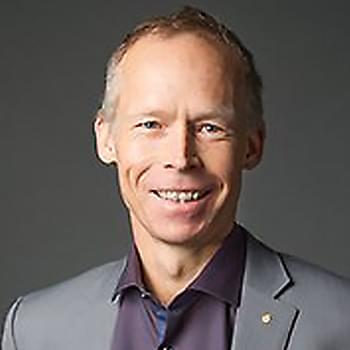
Keynote Speech
Johan Rockström
Director, Stockholm Resilience Centre / Professor, Environmental Science, Stockholm University
Johan Rockstrom is an international leading scientist on resilience, global sustainability and sustainable development.
He is a professor in water systems and global sustainability at Stockholm University and Executive Director of the Stockholm Resilience Centre.
Earlier he was Executive Director, Stockholm Environment Institute, SEI.
From October 2018 he will become joint director of the Potsdam Institute For Climate Impact Research.
Chairman of the Board, Global Compact Network Japan
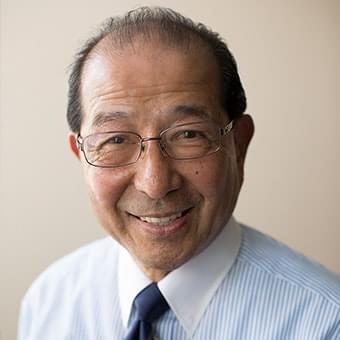
Keynote Speech
Toshio Arima
Chairman of the Board, Global Compact Network Japan
After graduating from the College of Liberal Arts of International Christian University in 1967, Toshio Arima joined Fuji Xerox. He became President and Representative Director of that company in 2002. In 2007 he retired as President and was appointed as an Executive Advisor to the Board. In the same year, he was appointed as a Board Member of the United Nations Global Compact. Since 2008 he also has been serving as Chairman of the Board of Global Compact Network Japan. In 2010, he also became the Chairperson of Japan Platform, an NGO platform organisation for emergency humanitarian aids.
He is a board member of two public companies, Kirin Holdings Co., Ltd. and Resona Holdings, Inc.
CEO & Chairperson, Global Environment Facility (GEF) / International Advisor, Sustainable Development Solutions Network (SDSN) Japan
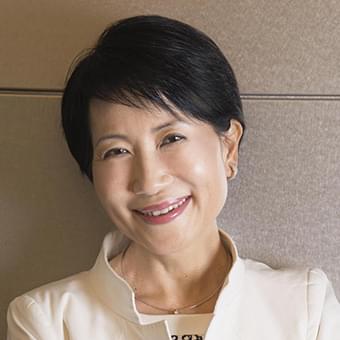
Naoko Ishii
CEO & Chairperson, Global Environment Facility (GEF)/ International Advisor, Sustainable Development Solutions Network (SDSN) Japan
Naoko Ishii has served as the CEO and Chairperson for the Global Environment Facility (GEF) since August 2012. In October 2015, the GEF Council unanimously agreed to extend her tenure for the second term until August 2020. Previously, Ms. Ishii was the Deputy Vice Minister of Finance of Japan, where she was responsible for Japan's international financial and development policies, and for its global policies on environmental issues such as climate change and biodiversity. She led the Japanese delegation at the Transition Committee for designing the Green Climate Fund.
For nearly half of her career, Ms. Ishii has served on international assignments, including at the World Bank and the International Monetary Fund.
At the World Bank, Ms. Ishii was the Country Director for Sri Lanka and the Maldives (2006-2010). She also served as the World Bank's country program coordinator for Vietnam (1997-2001), a project manager at the Harvard Institute for International Development (1996-1997), an economist at the International Monetary Fund (1992-1995) working on Africa and Asia, and a visiting fellow at the Center for International Affairs at Harvard University (1984-1985).
Ms. Ishii taught sustainable development and environment at Keio University. She has published numerous papers and several books, two of which were awarded the Suntory Prize (1990) and Okita Memorial Prize for International Development Research (2004). She is the inaugural recipient of the 2006 Enjoji Jiro Memorial Prize.
She holds a B.A. and a Ph.D. from the University of Tokyo.
Director, Wangari Maathai Institute for Peace and Environmental Studies
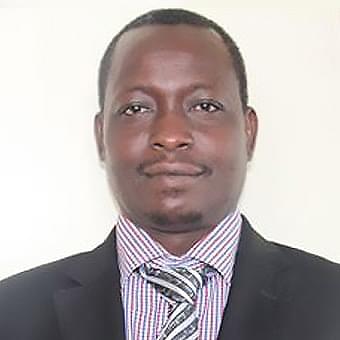
Henry M. Mutembei
Director, Wangari Maathai Institute for Peace and Environmental Studies
Henry M. Mutembei earned his Ph.D. in University of Justus Liebig, Gissen. He has worked for 23 years at the University of Nairobi, where he has held senior management positions serving as the Academic Head, the Coordinator of Programs & Projects, Member of board of postgraduate Studies.
As the Director of Wangari Mathai Institute of Peace and Environmental Studies, he overseas day-day running of the institute. He also serves as a member of Commission of University Education on quality assurance and also as a member of National biosafety committee. At a national level he has served as the Project Coordinator of the Disaster Management. His experience blends across the fields of veterinary medicine, agriculture, disaster management and environmental management.
Director-General for Environmental Policy, Ministry of the Environment, Japan (MOEJ)
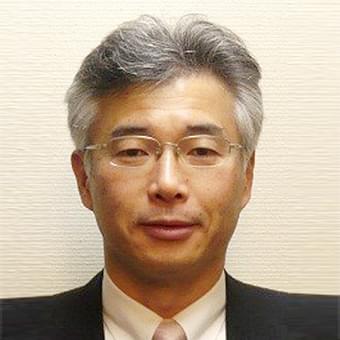
Tokutaro Nakai
Director-General for Environmental Policy, Ministry of the Environment, Japan (MOEJ)
Graduating from The University of Tokyo, Faculty of Law, Tokutaro Nakai entered Ministry of Finance in 1985. Mainly working at Budget Bureau, he moved to work at Toyama prefectural office. During his work in Toyama, he also helped to promote studies on Japan Sea. After that, he served several prominent positions such as Director at Public Relations, Financial Bureau planning officer, a Budget Examiner in charge of budget of Ministry of Agriculture, Forestry and Fisheries. He was transferred to Ministry of the Environment in July 2011. He also held several eminenet positions such as Director at Environmental Policy Bureau, Policy Planning Division, Director at Budget and Accounting Division, Minister’s Secretariat, Director at Personnel Division, Minister’s Secretariat, and Director-General at Waste Management and Recycling Department. He has been in the current position since July, 2017.
Deputy Mayor, City of Kitakyushu
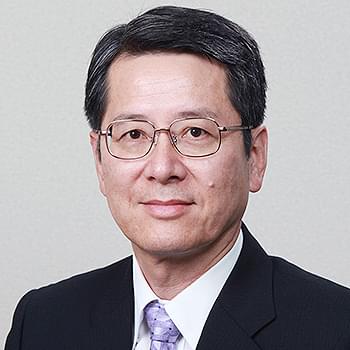
Hiroshi Imanaga
Deputy Mayor, City of Kitakyushu
Hiroshi Imanaga was born in February 1956. After he graduated from the School of Engineering, Hiroshima University, he joined the City of Kitakyushu in 1978. He has worked as Director of Planning Division of Port Management and Planning Bureau, Director of Road Planning Division of Construction and Road Bureau, Executive Director of Environment and Industry Policy Division of Environment Bureau, Chief Executive of Environment Economy Division of Environment Bureau, Kokura Minami Ward Mayor, Chief Executive of City Architect Bureau, Chief Executive of Environment Bureau, Chief Executive of Construction Bureau, before taking up his current position in April 2014.
President, IGES

Moderator
Kazuhiko Takeuchi
President, IGES
Kazuhiko Takeuchi graduated from the Department of Geography, the University of Tokyo in 1974. He obtained M.Agr. and Ph.D. from the Graduate School of Agriculture, the University of Tokyo. He served as a Professor at the Asian Natural Environmental Science Center, and as Professor at the Graduate School of Agricultural and Life Science at the University of Tokyo from 1997 to 2012. He also served as a Vice-Rector and Senior Vice-Rector at the United Nations University from 2008 to 2016. He has been Director and Professor/Project Professor of the Integrated Research System for Sustainability Science (IR3S) at the University of Tokyo since 2012. He took up the position as President, Institute for Global Environmental Strategies (IGES) in July 2017. He has served, inter alia, as a Vice-President of the Science Council of Japan, Chair of the Central Environmental Council, Government of Japan, and Editor-in-Chief of the journal Sustainability Science (Springer Nature).
He specialises in landscape ecology, landscape planning, and sustainability science.
Director, Research and Publications, Strategic Management Office, IGES

Mark Elder
Director, Research and Publications, Strategic Management Office, IGES
Mark Elder is Director of Research and Publications, Strategic Management Office at the Institute for Global Environmental Strategies (IGES) in Japan. He has led various research projects on environmental and sustainability governance issues including: sustainable development goals, Rio+20 institutional framework for sustainable development, transboundary air pollution, regional environmental cooperation in East Asia, economic integration, biofuels, and local governance. Before joining IGES in 2006, he was Assistant Professor of Political Economy and International Relations at Michigan State University. He received a Ph.D. in political science from the Department of Government, Harvard University. On SDGs, he coauthored a policy report on “Scoring the Sustainable Development Goals: Pathways for Asia and the Pacific,” and an article in the journal Sustainability on “An Optimistic Analysis of the Means of Implementation for Sustainable Development Goals: Thinking about Goals as Means”.
Senior Policy Advisor, IGES
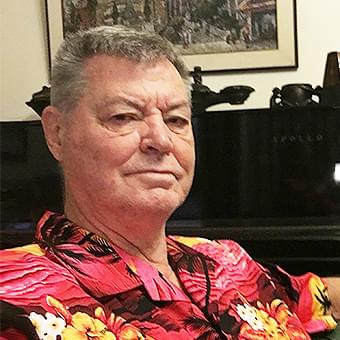
Peter King
Senior Policy Advisor, IGES
Peter King has been an avid environmentalist for more than 40 years. He started his career in the Soil Conservation Authority in the state of Victoria and became the Land Studies Coordinator in Victoria’s first Ministry for Conservation. He spent some time at the Environment and Policy Institute, East West Center in Hawaii and then set up his own environmental consulting company. In 1991, he started work with the Asian Developing Bank (ADB) as an Environment Specialist and established a sound reputation as ADB’s leading natural resources management (“green”) expert, with personal responsibility for over 50 loan and TA projects. In 1998, he was awarded a Doctor of Philosophy (Environmental Science) degree from Murdoch University in Perth.
In 2005, he took early retirement from ADB and is currently a Senior Policy Advisor for IGES , heads the Asian Environmental Compliance and Enforcement Network secretariat, is a member of the Climate Change Asia Coordination Group, and is Team Leader, Adaptation Project Preparation and Finance on the USAID Adapt Asia-Pacific project.
Research Leader, Strategic and Quantitative Analysis Centre, IGES
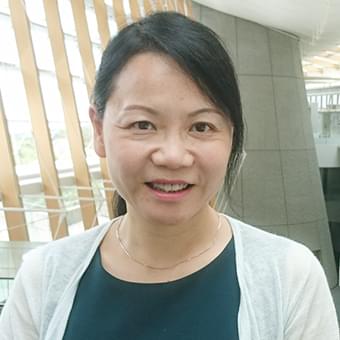
Xin Zhou
Research Leader, Strategic and Quantitative Analysis Centre, IGES
Xin Zhou is Research Leader of the Strategic and Quantitative Analysis Centre (QAC) at the Institute for Global Environmental Strategies (IGES). Currently, she is leading quantitative policy research in the areas of SDG interlinkages analysis and visualisation, green investment and green jobs assessment and water-energy nexus study in Ganges River. In recent years, she led a wide array of policy assessment works including the labour market implications of nationally determined contributions (NDC) in Indonesia, assessment of carbon pricing and border carbon adjustment on industrial competitiveness and carbon leakage in Japan, assessment of embodied emissions and international trade for Asian countries, assessment of the employment effects of environmental goods and services sectors in northeast Asian countries, and the development of the Japan 2050 Low Carbon Navigator, etc. She received Ph.D. in Environmental Studies from Nagoya University, Japan, in 2007. Before that, she had been working with the Policy Research Center for Environment and Economy (PRCEE), the Ministry of Environmental Protection, China, since 1994. As Director of Policy Research Division, she led many policy research supporting national policy-making on the environment. She received several national scientific achievement prizes for her academic and social contributions to the Chinese government.
Research Leader, Sustainability Governance Centre, IGES

Eric Zusman
Research Leader, Sustainability Governance Centre, IGES
Eric Zusman is a senior policy researcher/area leader at the Institute for Global Environmental Studies in Hayama, Japan. He holds a bachelors degree in Mandarin Chinese from Rutgers University, a dual Masters Degree in public policy and Asian studies from the University of Texas at Austin and a Ph.D. in political science from the University of California, Los Angeles. For much of the past decade he has worked on environmental issues in Asia. This has included publishing articles and book chapters on water scarcity, air pollution regulation, environmental law and state capacity in greater China. It has also included working with China’s Yellow River Conservancy Commission and the Chinese Research Academy on Environmental Science. He also held research assistantships with the Woodrow Wilson Center’s China Environment Forum as well as Taiwan’s Academia Sinica. In his current position, he is looking at the co-benefits of climate policies in developing Asia.
Chief Director, National Institute for Environmental Studies (NIES)
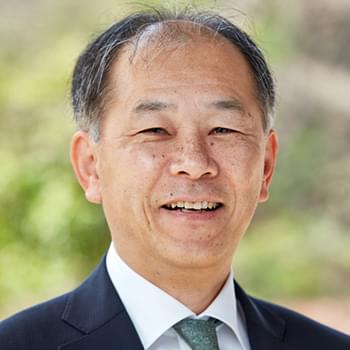
Commentator
Chiho Watanabe
Chief Director, National Institute for Environmental Studies (NIES)
Chiho Watanabe is Chief Director of the National Institute for Environmental Studies, National Institute for Environmental Studies (April, 2017), as well as Professor Emeritus of the University of Tokyo. His specialty fields are human ecology, environment and health, environmental toxicology. He holds a Doctor of Health Sciences (The University of Tokyo, 1991). His publications include "Sustainability challenges: Elucidating sustainability-health intersections" (co-edited, Current Opinion in Environmental Sustainability), "Human ecology" (co-edited by Asakura Shoten), "Science of toxicity" 2017, 25 Special Issue) etc. He has held positions including Vice Chairman of the Society of Human Ecology (2011-2017), and Chairman of the Japan Health Association (2017~).
Distinguished Fellow, The Energy and Resources Institute (TERI)
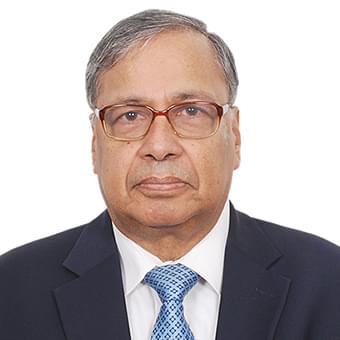
Commentator
Ajay Shankar
Distinguished Fellow, The Energy and Resources Institute (TERI)
Executive Director, IGES
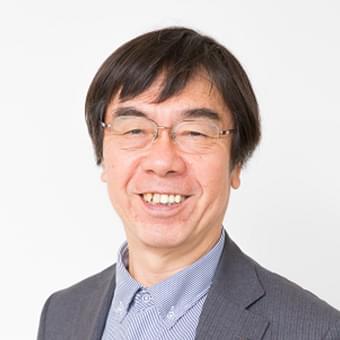
Moderator
Hideyuki Mori
Executive Director, IGES
Hideyuki Mori is a graduate of the School of Engineering, Kyoto University. He joined IGES in 2003. Prior to joining IGES, he served as Environment Specialist at the Asian Development Bank, Senior Environmental Coordinator of the United Nations High Commissioner of Refugees, Director of the Office of Research and Information at the Global Environment Issues Division of the Environment Agency of Japan (present Ministry of the Environment), and as Portfolio Manager of the Division of GEF at the United Nations Environment Programme. He was a professor at Keio University from 2008-2010. He has served as the Executive Director of IGES since 2010.
Professor, Keio University
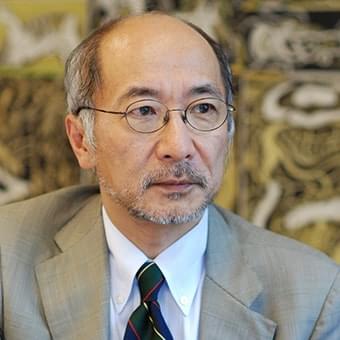
Eiji Hosoda
Professor, Keio University
Eiji Hosoda is a Professor of Keio University. He was born in 1953 and graduated from Keio University in 1977. He holds a Doctor of Economics (Keio University). He was a visiting student at Manchester University as a British Council Scholar (1983~1985). He has held positions as Professor at Faculty of Economics, Keio University (1994~), Dean of Faculty of Economics, Keio University (2001~2005), President of the Society of Environmental Economics and Policy Studies, Japan (2010~2012), President of the Society of Environmental Science, Japan (2013~2015), President of the 3R Promotion Council (2005~), President of the 3R Promotion Forum (2014~). His recent publications include: Hosoda, E. (2016) “Interactive aspects of producers and waste‑disposal firms out of a market boundary”, Journal of Economic Structures, 5:7 DOI 10.1186/s40008-016-0038-7. Gonzalez, R. and E. B. Hosoda (2016) “Environmental impact of aircraft emissions and aviation fuel tax in Japan”, Journal of Air Transport Management, Vol. 57, pp. 234-240, Elsevier.
Director, Environment and Development Division, United Nations Economic and Social Commission for Asia and the Pacific (UNESCAP)
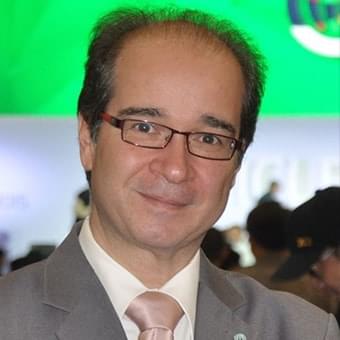
Stefanos Fotiou
Director, Environment and Development Division, United Nations Economic and Social Commission for Asia and the Pacific (UNESCAP)
Stefanos Fotiou is an expert on environmental management and sustainable development and currently serving in the United Nations ESCAP as the Director of the "Environment and Development" Division. Under his portfolio he is planning, coordinating and managing the work of UNESCAP on natural resources management, urbanisation, climate change, and the 2030 Agenda on Sustainable Development. Prior to this assignment Stefanos worked for 10 years at UN Environment (UNEP) under various roles and including substantive and managerial work in the areas of resource efficiency, cities’ resilience, sustainable consumption and production, green economy etc. Stefanos has taken leading roles in international forums and initiatives and his individual and joint works have been widely published. A Greek national he holds a Ph.D. in Natural Resource Economics, a Master's of Science in Information Systems, and a Master's in Forestry and Natural Environment.
Project Director, Circular Economy, The Finnish Innovation Fund Sitra

Kari Herlevi
Project Director, Circular Economy, The Finnish Innovation Fund Sitra
Kari Herlevi is a versatile multi-talent in the field of circular economy.
He is currently leading the circular economy area at Sitra, the Finnish Innovation Fund. Previously responsible for the Resource efficient economy area in Tekes, the Finnish Funding Agency for Innovation, he managed the “Green Growth towards a Sustainable Future” programme, which aimed to identify potential new growth areas for the sustainable economy business.Head, Circular Economy Initiative, World Economic Forum (Geneva)

Antonia Gawel
Head, Circular Economy Initiative, World Economic Forum (Geneva)
Antonia Gawel heads the Circular Economy Initiative at the World Economic Forum. Prior to joining the Forum, she worked in Bhutan as an advisor on environment and clean energy programmes and at the International Energy Agency (IEA) where she was responsible for IEA’s work on monitoring and evaluating clean energy policy and deployment progress as input to the Clean Energy Ministerial and G-20 processes. She was also formerly Deputy Director, Energy and Climate, at the World Business Council for Sustainable Development in Geneva. In 2006, she was selected for the “Young Canadian Leaders for a Sustainable Future” progamme of the International Institute for Sustainable Development. She holds a Master’s in Environmental Planning, Policy and Regulation from the London School of Economics and an Hon. BA in Economics from the University of Toronto.
Director, IGES Centre Collaborating with UNEP on Environmental Technologies (CCET)
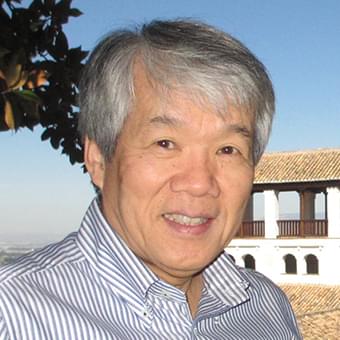
Moderator
Kazunobu Onogawa
Director, IGES Centre Collaborating with UNEP on Environmental Technologies (CCET)
Kazunobu Onogawa joined IGES in 2012 as a senior fellow. Before joining IGES, he was the Director of United Nations Center for Regional Development (UNCRD) between 2002 and 2011, and also served for IGES as a trustee member over this period. After graduation from Kyoto University in 1972 reading Environmental Engineering, he joined the newly established Environment Agency of Japan (current Ministry of the Environment, MOEJ) and worked for policy development for water quality management, EIA, transport management as well as global environmental issues in addition to coordination of environmental research activities of national research institutes of Japan. He had also worked for UNEP (Bangkok), IIASA (Vienna), National Institute for Environmental Studies (NIES), Regional Environment Center for Central and Eastern Europe (REC, Hungary) in addition to MOEJ and UNCRD.
Director, UN Environment International Environmental Technology Centre
(UNEP-IETC)

Keith Alverson
Director, UN Environment International Environmental Technology Centre (UNEP-IETC)
Keith Alverson has been director of the UN Environment International Environmental Technology Centre in Osaka, Japan since July 2016. The centre serves as a global centre of excellence on environmentally sound technologies with a focus on waste management. Prior to that he served five years as the Coordinator of the Freshwater, Land and Climate Branch of UN Environment in Nairobi, Kenya. Prior to joining UNEP, Keith was Head of Ocean Observations and Services at the Intergovernmental Oceanographic Commission of UNESCO, in Paris, France. Keith has an Engineering degree and certificate in East Asian Studies from Princeton University (1988) and a Ph.D. in Physical Oceanography from M.I.T. (1995). He has over 100 publications including Resilience: The Science of Adaptation to Climate Change (Elsevier, 2018), Global Change and Future Earth (Cambridge, in press), and Past Global Changes and Their Significance for the Future (Elsevier, 2000).
Programme Manager, IGES Centre Collaborating with UNEP on Environmental Technologies (CCET)
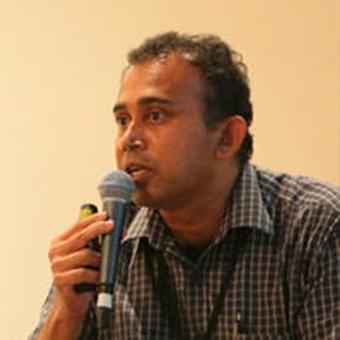
Premakumara Jagath Dickella Gamaralalage
Programme Manager, IGES Centre Collaborating with UNEP on Environmental Technologies (CCET)
Premakumara is a development planner, specialising in environmental planning and sustainable urban development. He obtained his Ph.D. in Management Development from the Nihon Fukushi University. After serving as a postdoctoral fellow at the Meijo Asian Research Center, Meijo University, he started working for IGES, Kitakyushu Urban Centre in Japan. At the Kitakyushu Urban Centre, he focused on participatory planning and community-based development in establishing sustainable cities. Currently, he works as a Programme Manager of the IGES Centre Collaborating with UNEP on Environmental Technologies (CCET) and provides technical support for developing countries in improving their waste management in more integrated manner to contribute in achieving pollution-free, resource-efficient and sustainable societies in Asia and the Pacific.
Deputy Minister of Environment and Energy, Ministry of Environment and Energy, Maldives
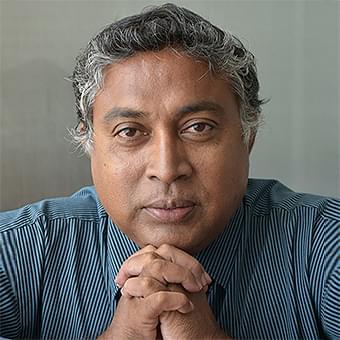
Ali Amir
Deputy Minister of Environment and Energy, Ministry of Environment and Energy, Maldives
Mr. Amir was appointed in June of 2014, by the President of the Maldives, as the Deputy Minister of Environment and Energy. Since then, he has been assigned the task of finding a solution the complex issue of waste management in the Maldives.
His key task in this position is to provide policy guidance and oversee the works of the Waste Management and Pollution Control Department of the Ministry of Environment and Energy.
Before being appointed to this position, Amir has worked in the field of Public Works, for over 22 years, and was the Director General of Public Works, in charge of the Public Works Department before he resigned in 2010.
Director, Environmental Conservation Department, Ministry of Natural Resources and Environmental Conservation, Myanmar
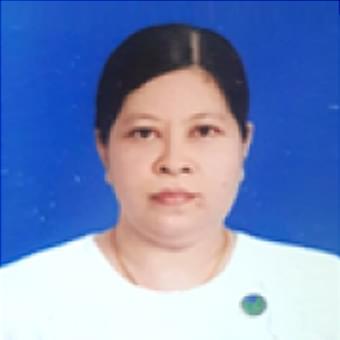
Khin Thida Tin
Director, Environmental Conservation Department, Ministry of Natural Resources and Environmental Conservation, Myanmar
Khin Thida Tin is currently Director of Yangon Region Environmental Conservation Department, Ministry of Natural Resources and Environmental Conservation (MONREC) in Myanmar. Prior to this, she was a Fellow with the National Commission for Environmental Affairs, where she earned a Postgraduate Diploma in Environmental Management from University of Adelaide, Australia on 14th July 1994. She previously worked at the National Commission for Environmental Affairs from 1992 to 2012. Her current projects include: Green Economy National and City Level Waste Management Strategy in Myanmar. She completed her Master’s Degree in Zoology from the University of Yangon in Myanmar. She has 24 years of work experience on environmental management. She participated in a number of international, regional, and local training programmes, seminars and conferences relating to the Environmental Management.
Executive Director, WE21 Japan

Yuki Morita
Executive Director, WE21 Japan
Having interested in world’s poverty issues, Ms. Morita learned international cooperation through NGO internships and graduate schools in Thailand during her college years. She joined WE21 Japan in 2007, and has served as the Executive Director since 2017. At WE21 Japan, she is engaged in the activities of "WE Shop" - a base for reuse and recycling of valuable resources through citizen participation, and assistance and awareness raising activities in the Philippines around the issues of natural resource exploitation.
Director, IGES Centre Collaborating with UNEP on Environmental Technologies (CCET)

Moderator
Kazunobu Onogawa
Director, IGES Centre Collaborating with UNEP on Environmental Technologies (CCET)
Kazunobu Onogawa joined IGES in 2012 as a senior fellow. Before joining IGES, he was the Director of United Nations Center for Regional Development (UNCRD) between 2002 and 2011, and also served for IGES as a trustee member over this period. After graduation from Kyoto University in 1972 reading Environmental Engineering, he joined the newly established Environment Agency of Japan (current Ministry of the Environment, MOEJ) and worked for policy development for water quality management, EIA, transport management as well as global environmental issues in addition to coordination of environmental research activities of national research institutes of Japan. He had also worked for UNEP (Bangkok), IIASA (Vienna), National Institute for Environmental Studies (NIES), Regional Environment Center for Central and Eastern Europe (REC, Hungary) in addition to MOEJ and UNCRD.
Research Leader / Principal Researcher, Climate and Energy Area, IGES
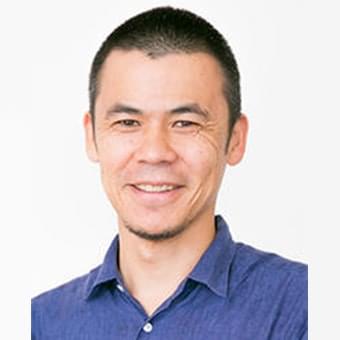
Kentaro Tamura
Research Leader / Principal Researcher, Climate and Energy Area, IGES
Kentaro Tamura obtained Ph.D. in International Relations from the London School of Economics (LSE). After working for the Yokohama National University, he joined IGES in 2003. He has centred his research on international cooperation on climate change, in particular the development and design of international climate regime, political economy and comparative studies of domestic climate and energy policy making processes in major economies. He published a number of peer-reviewed journal articles and book chapters and edited books in the field of climate and energy policy.
General CSR Division Manager, Corporate Citizenship Department, AEON Co., Ltd.
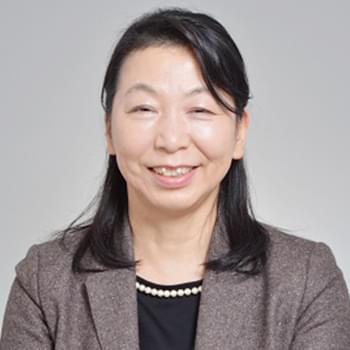
Haruko Kanamaru
General CSR Division Manager, Corporate Citizenship Department, AEON Co., Ltd.
After graduating from the Department of Economics, Faculty of Policy Science and Economics of Hiroshima University, Haruko Kanamaru entered Nichii Co., Ltd. She started work at AEON Co., Ltd. in 2011 and has served as the officer-in-charge of Corporate Customer Service, Director of Customer Service at AEON Retail Co., Ltd., and Head of Management Skill Planning Committee. She was assigned to her current position in September 2013.
Vice Governor, Nagano Prefectural Government
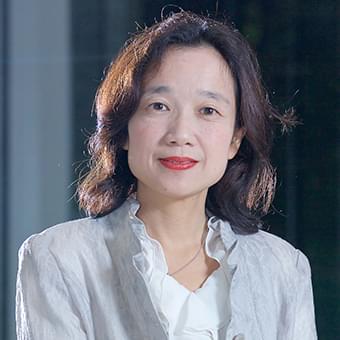
Eri Nakajima
Vice Governor, Nagano Prefectural Government
After graduating from Faculty of Law at Kyoto University, Eri Nakajima entered the Ministry of the Environment, and was involved in global warming prevention, water environment conservation, environmental education, and conservation of natural environment. She also promoted renewable energy in the Ministry of Economy, Trade and Industry. Since 2011, she was engaged in planning and formulating environmental energy policy as the Director of Global Warming Prevention Division, Environment Department, Nagano Prefectural Government. She was appointed to her present position in April 2015. She engages in an agricultural, self-build, and environmentally friendly lifestyle utilising natural energy, while living a double-region lifestyle in Fujimi-cho in Nagano and Tokyo (currently, residing in Nagano City).
Director General of Climate Change Policy Headquarters, City of Yokohama
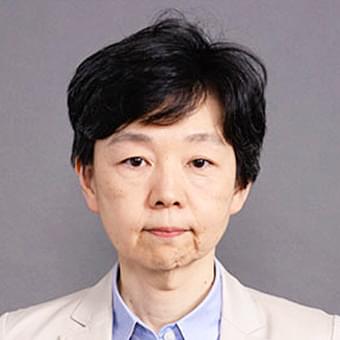
Eriko Yakushiji
Director General of Climate Change Policy Headquarters, City of Yokohama
Eriko Yakushiji began working for the City of Yokohama in 1983. She has been in charge of various projects, such as Minatomirai 21 project, the attracting of businesses, support for new industry development, and the promotion of culture. In recent years, she has served several positions, including Director General of Seya Ward and Director General of Urban Development Bureau. She was assigned to her current position in April 2018.
International Director, Kiko Network
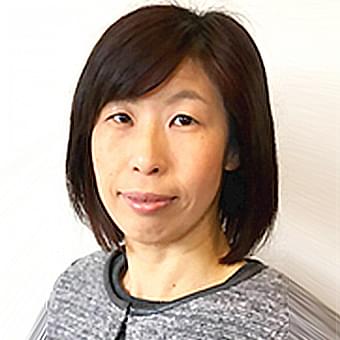
Kimiko Hirata
International Director, Kiko Network
Kimiko Hirata is International Director of Kiko (Climate) Network, a non-profit network organisation in Japan. She leads work on international and national climate and energy policy, and has conducted various research and advocacy work since she joined Kiko Network in 1998. After the Fukushima nuclear accident in 2011, she co-authored a book called "Toward nuclear-free and climate change-free society", which analyses several NGOs' low-carbon scenarios. Recently, she has led a coal project team in the organisation to fight against domestic coal expansion and international coal finance. She has been engaged in the UNFCCC (United Nations Framework Convention on Climate Change) process since COP3 in 1997. As part of the global NGO network, she serves as chair of CAN-Japan, and was also a board member of Climate Action Network International from 2012-2015. She has an M.A. in social science from Waseda University.
Director, Research and Information Office, Policy Planning Division, Global Environment Bureau, Ministry of the Environment, Japan (MOEJ)
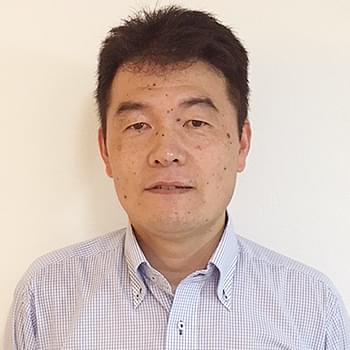
Michihiro Oi
Director, Research and Information Office, Policy Planning Division, Global Environment Bureau, Ministry of the Environment, Japan (MOEJ)
After graduating with a Master’s of Science from Kyoto University, Michihiro Oi entered the Ministry of the Environment, Japan in April 1995. At the Ministry, he took charge of several environmental issues including air pollution control, climate change mitigation measures and chemicals management. He also studied Environment and Development at the University of East Anglia, UK from 2003 to 2005, and was seconded to the Organisation for Economic Cooperation and Development (OECD) from 2008 to 2011. From 2011 to 2015 he was engaged in international negotiations to adopt the Paris Agreement. In June 2016 he was appointed as the Director of Office of Environmental Impact Assessment Review, responsible for the environmental impact assessment review of various projects. Since April 2018, he has also covered adaptation to climate change. As of 13 July 2018, he assumed his new responsibility as the Director of Research and Information Office.
Director, Future Energy and Mobility Structures, Wuppertal Institute for Climate, Environment and Energy

Stefan Lechtenböhmer
Director, Future Energy and Mobility Structures, Wuppertal Institute for Climate, Environment and Energy
Stefan Lechtenböhmer is responsible for applied research in regional, national and international energy and climate scenario analysis and scenarios for a Sustainable Low Carbon Society at the Wuppertal Institute for Climate, Environment, Energy. He has lead and conducted numerous studies on energy and emission scenario analysis. He currently works on topics around sustainable future energy systems with a focus on deep decarbonisation strategies in energy intensive processing industries.
He acquired his Ph.D.. in energy and environmental management at the International Institute for Management University of Flensburg. He holds a university degree (diploma) in geography, economy and political sciences from the University of Münster. Stefan Lechtenböhmer is adjunct professor for "Sustainable Future Energy Systems" at Lund University, Sweden.
He is member of the Steering Group of the G8 Low Carbon Society Research Network and the UNFCCC Roster of Experts for GHG-Inventories, Policies & Measures, GHG-Projections.
Project Manager and Research Fellow,
International Research Center on Environment and Development (CIRED)

Christophe Cassen
Project Manager and Research Fellow,
International Research Center on Environment and Development (CIRED)
Joint-Director, Knowledge and Communications, Strategic Management Office, IGES
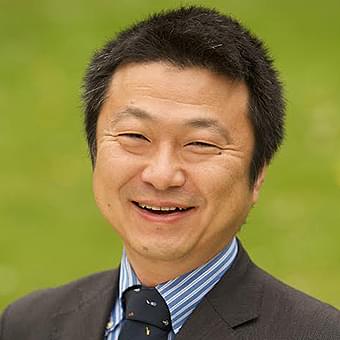
Moderator
Takashi Otsuka
Joint-Director, Knowledge and Communications, Strategic Management Office, IGES
Deputy Director-General, Research Institute for Humanity and Nature (RIHN)
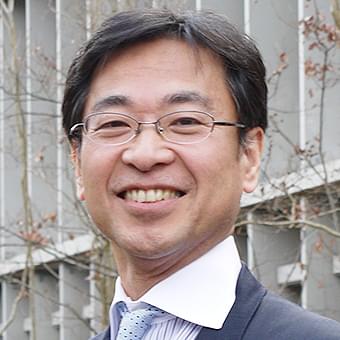
Makoto Taniguchi
Deputy Director-General, Research Institute for Humanity and Nature (RIHN)
Makoto Taniguchi is a hydrogeologist and a deputy director-general at the Research Institute for Humanity and Nature (RIHN), Japan. He is currently the Vice President of International Association of Hydrogeologists, the president of the Japanese Association of Groundwater Hydrology. He is also a member of Science Committee of Future Earth Nexus KAN. He has worked on groundwater projects around world in particular Asia, authoring or co-authoring over 120 articles and 8 books including “Groundwater and Subsurface Environment in Asia (Springer)”
Director, Environment and Development Division, United Nations Economic and Social Commission for Asia and the Pacific (UNESCAP)

Stefanos Fotiou
Director, Environment and Development Division, United Nations Economic and Social Commission for Asia and the Pacific (UNESCAP)
Stefanos Fotiou is an expert on environmental management and sustainable development and currently serving in the United Nations ESCAP as the Director of the "Environment and Development" Division. Under his portfolio he is planning, coordinating and managing the work of UN-ESCAP on natural resources management, urbanization, climate change, and the 2030 Agenda on Sustainable Development. Prior to this assignment Stefanos worked for 10 years in the United Nations Environment Programme (UNEP) under various roles and including substantive and managerial work in the areas of resource efficiency, cities’ resilience, sustainable consumption and production, green economy etc.
Stefanos has taken leading roles in international forums and initiatives and his individual and joint works have been widely published. A Greek national he holds a Ph.D. in Natural Resource Economics, a Master of Science in Information Systems, and a Master in Forestry and Natural Environment.
Research Fellow, Wuppertal Institute for Climate, Environment and Energy

Julia Terrapon-Pfaff
Research Fellow, Wuppertal Institute for Climate, Environment and Energy
Julia Terrapon-Pfaff is a research fellow at the Wuppertal Institute, where she works in and coordinates national and international research projects. She graduated from the University of Trier in 2008, where she studied geography, strategic management and public law. In her doctoral thesis she focused on the process of strategic decision-making in the energy sector from a multi-objective perspective. Her primary research areas are renewable energy solutions for developing and emerging countries. She has expertise in the fields of impact evaluations and decision analysis and experience in working with international partners and local stakeholders in Asia as well as North- and East Africa.
Senior Policy Researcher, Natural Resources and Ecosystem Services Area, IGES
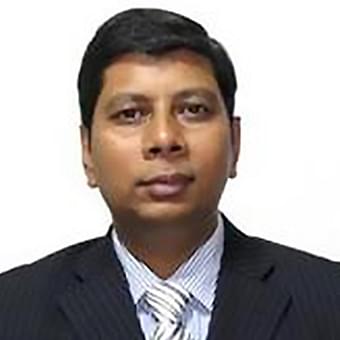
Bijon Kumer Mitra
Senior Policy Researcher, Natural Resources and Ecosystem Services Area, IGES
Bijon Kumer Mitra is a Senior Water Resource Specialist of the Institute for Global Environmental (IGES). He worked with the Taisei Technology Research Centre, Japan as a Research Engineer till November 2009, and responsible for managing and conducting research works on remediation of contaminated soil and water. He has more than ten years of experience in the field of water resource management. His current research interests include water-energy-food-climate nexus, rural-urban linkage, climate change adaptation in water, water environment management. He uses quantitative assessment framework to assess resource allocation trade-offs, aiming to provide guidance for optimal decision making. He holds a Ph.D. degree in Science of Biotic Environment from Iwate University, Japan.
Director, Water Conservation Section, Kumamoto City
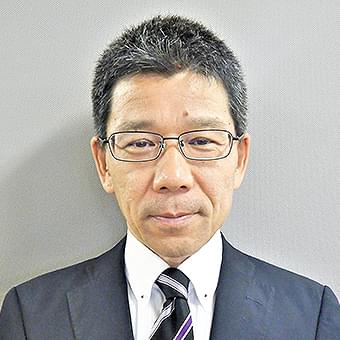
Tsutomu Nagata
Director, Water Conservation Section, Kumamoto City
Tsutomu Nagata started to work for Kumamoto City Hall in 1990. He is in charge of long-term potable groundwater quality preservation and water conversation policy. His focus is especially placed on making policies to resolve the recent problem of nitrate nitrogen pollution in water supplies. He was Deputy Director in 2015, and was promoted to Director in April 2016.
Assistant Professor, Department of Environmental Science, Central University of Rajasthan
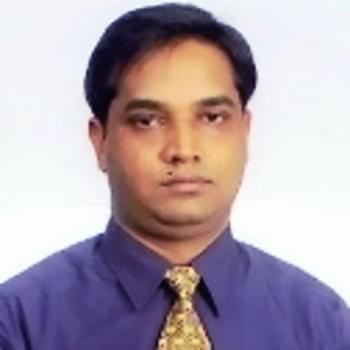
Devesh Sharma
Assistant Professor, Department of Environmental Science, Central University of Rajasthan
Devesh Sharma is currently working as faculty in the Department of Environmental Science at Central University of Rajasthan, India. He has over 15 years of experience and specialises in Integrated Water Resources Management and Climate Change. He has wide experience of various sponsored research projects at national and international level including IGES (Japan); AIT (Thailand); SMHI (Sweden); APN (Japan); Thuyloi University (Vietnam); UNU (Japan). He has over 30 publications in international refereed journals, book chapters and conference proceedings. His research areas are Climate Change and Water Resources, Watershed Management, Integrated Water Resources Management, Modeling of Water Resources Systems, Geospatial Applications, water-energy-food nexus.
Professor, Institute of Water and Flood Management (IWFM) of Bangladesh University of Engineering and Technology (BUET)
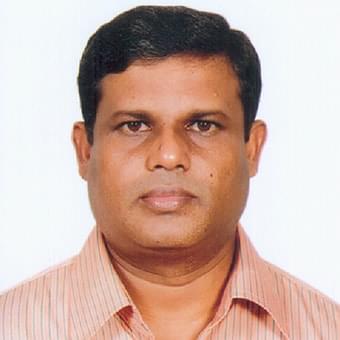
Tarekul Islam
Professor, Institute of Water and Flood Management (IWFM) of Bangladesh University of Engineering and Technology (BUET)
G M Tarekul Islam is a Professor at the Institute of Water and Flood Management (IWFM) of Bangladesh University of Engineering and Technology (BUET). He graduated in Civil Engineering in 1994 and did his Masters in Water Resources Engineering in 1996 from BUET.
He joined IWFM as a Lecturer in 1996 and became Professor in 2010. He received Monbusho Scholarship from the Government of Japan to pursue Ph.D. at the Department of Civil Engineering of the University of Tokyo, Japan during 1997-2000. He has been involved in many research projects in diverse fields of water resources engineering and management.
He was awarded by the University Grants Commission (UGC) of Bangladesh as the best researcher in Engineering and Technology category in 2003. He has imparted numerous talks on various issues of water and flood management as invited speaker in home and abroad. He has published over 90 papers in international journals and conference proceedings.
Lecturer, Ha Noi University of Natural Resources and Environment
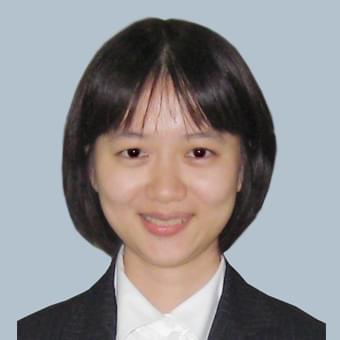
Pham Thi Mai Thao
Lecturer, Ha Noi University of Natural Resources and Environment
Pham Thi Mai Thao is a lecturer in Ha Noi university of Natural Resources and Environment, Vietnam. She got Ph.D.. in Environmental Engineering from the University of Tokyo in Japan.
The courses she offers are environmental management, renewable energy, green growth, sustainability science, climate change. The interested research fields are renewable energy and energy efficiency, environmental and impact assessment, risk assessment, natural resource management, biological diversity protection, waste treatment technologies, sustainable development, green growth/economy.
Programme Director, Natural Resources and Ecosystem Services Area, IGES
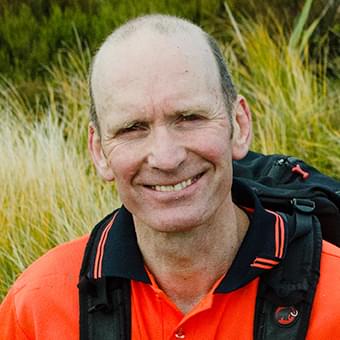
Moderator
Henry Scheyvens
Programme Director, Natural Resources and Ecosystem Services Area, IGES
Henry Scheyvens holds a Ph.D. in Political Science from Monash University and a M.Phil in Development Studies from Massey University. He has taught at several universities in New Zealand, Australia and Japan. He joined IGES in 2004, where he now serves as the Area Leader of the Natural Resources and Ecosystems Services Area. His research interests centre around poverty, livelihoods and rights issues. In the past few years, his research has focused on timber legality and sustainability, participatory forest mapping and monitoring, REDD+ readiness, and inclusive financial services.